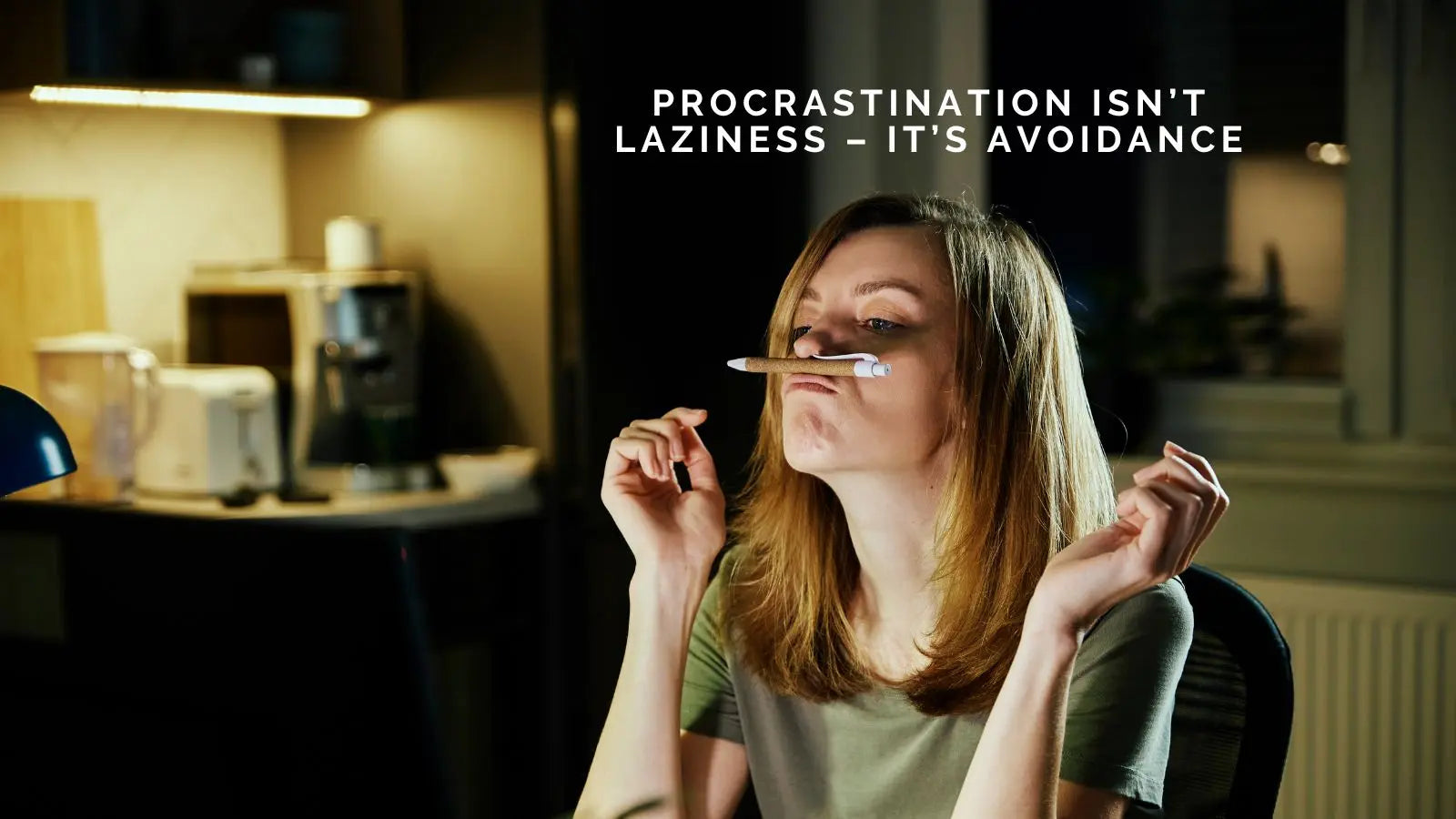
We’ve all been there — the important email that’s still sitting in drafts, the cluttered room you said you’d tackle, the deadline looming like a thundercloud while you scroll through videos of cats wearing tiny jumpers. And then comes the internal monologue: “Why can’t I just do it? Am I lazy? What’s wrong with me?”
Absolutely nothing. You’re not lazy. You’re likely trying to avoid something that feels uncomfortable, overwhelming, or emotionally loaded. And that’s a completely human response.
What Procrastination Really Is
Procrastination is often a coping mechanism — not a character flaw. It’s your brain’s way of saying, “This feels threatening in some way, so let’s avoid it.”
But what’s the actual threat? It’s rarely the task itself. It’s what the task represents or triggers internally.
Let’s unpack a few common mental blocks behind procrastination:
Fear of Failure
You might avoid starting because you're terrified you’ll mess it up — or that it won’t be good enough. This fear is paralysing and often stems from perfectionism or past criticism. If you never start, you can’t fail, right?
But here’s the truth: trying and not getting it perfect is still growth. Perfection isn’t the goal — progress is.
Overwhelm and Anxiety
Sometimes, the task feels so big that your nervous system shuts down. You stare at the mountain instead of breaking it into hills. Your brain gets stuck in *fight, flight, or freeze* — and most procrastinators are firmly in *freeze* mode.
This isn’t a lack of discipline; it’s your brain protecting you from perceived danger.
Low Self-Worth
If deep down you don’t believe you’re capable or deserving of success, your brain might sabotage you. Procrastination becomes a self-fulfilling prophecy: you delay, then feel guilty, which reinforces those negative beliefs.
Recognising this cycle is the first step toward breaking it.
Unclear Boundaries or Priorities
Procrastination can also arise when you’re juggling too much and haven’t been taught how to prioritise. It’s not that you can’t focus — it’s that you’re *trying to focus on everything*, which is exhausting.
Past Trauma
For some, especially those who’ve experienced trauma, even small tasks can trigger a survival response. A seemingly simple task like replying to a message can bring up feelings of exposure, judgment, or vulnerability.
Procrastination here is not laziness — it’s protection.
How to Recognise Procrastination Early
The key is self-awareness. Start noticing the signs that you’re avoiding something:
Do you suddenly feel the urge to clean, scroll, or nap when a task comes up?
Do you tell yourself, “I’ll do it later,” without setting a specific time?
Are you feeling heavy or anxious when you think about the task?
These are all flags that your brain is in avoidance mode.
How to Gently Work Through It
Now comes the good part — not fixing, but supporting yourself.
Ask: “What am I really avoiding?”
Get curious, not critical. Write it down. Are you afraid of being judged? Are you worried it won’t be perfect? Are you just exhausted?
Naming the fear takes away some of its power.
Break it down
If the task feels like a mountain, break it into pebbles. Instead of “write the report,” make it “open the doc” or “write the first sentence.” Celebrate each small win — momentum builds quickly.
Talk kindly to yourself
Ditch the harsh inner critic. Try saying, “I’m doing my best,” or “It’s okay to feel stuck. Let’s try one small step.” Compassion motivates far better than shame ever could.
Time block with freedom
Instead of rigid to-do lists, try time blocking with flexibility. Give yourself a 25-minute window to focus (the Pomodoro technique is great) and then allow a break. It respects your energy and keeps you engaged.
Seek support
If the task feels triggering or tied to deeper issues, don’t hesitate to talk to someone — a friend, a therapist, a coach. You don’t have to navigate this alone.
You’re Not Lazy — You’re Protecting Yourself
When you start viewing procrastination as a signal rather than a flaw, everything changes. You stop beating yourself up and start meeting your needs. You get to ask, “What does my mind or body need right now to feel safe enough to move forward?”
Sometimes, it’s rest. Sometimes, it’s clarity. Sometimes, it’s simply knowing that what you’re feeling is normal — and that you are capable of navigating it.
So next time you find yourself putting something off, pause and check in. Be gentle. You’re not behind — you’re just a human being, doing your best.
And that is always enough.




























